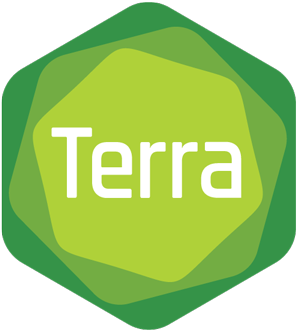

Tell us what you need: Submit feature requests and vote on community ideas
Got any ideas for improving Terra? The Feature & Documentation Requests section of the Community forum is the best way to let us know what you’re thinking.


Got any ideas for improving Terra? The Feature & Documentation Requests section of the Community forum is the best way to let us know what you’re thinking.


One of our biggest feature developments so far this year has been the addition of Galaxy, the popular open-source bioinformatics application, to Terra’s interactive analysis portfolio.


The Broad Institute has been awarded the high profile “FedRAMP Moderate” security authorization for the operation of the Terra platform. David Bernick gives us insight into the FedRAMP program and explains what this means for researchers using Terra to access, analyze and share sensitive data.


Terra offers an assortment of cloud environments pre-configured for interactive analysis with popular tools and packages. In response to popular demand, we recently updated Terra’s R-based notebook environments to include the latest version of Seurat, a widely-used R package for multimodal single-cell analysis.


Like any repository of community-contributed content, we need to ensure that contributors can manage their content conveniently, and that researchers are able to find the right content for their needs.


Many workflows generate intermediate files that you won’t ever use again once the pipeline has run to completion. You can reduce your data footprint — and your storage costs! — by getting Terra to delete them for you.


On the cloud, the rate you pay for computing resources is based on the technical specifications of the virtual machines you use. Our pipeline engineering team offers some tips for cutting costs by adjusting workflow resource allocations dynamically.


A list of Terra highlights from this past year, focusing specifically on new options and capabilities for interactive analysis and workflow execution that you would interact within the user interface.


Last week I gave you a tour of the RStudio integration that we’re building into Terra in the context of the AnVIL project, in collaboration with the Bioconductor team. This week I want to introduce you to the Galaxy integration, another great collaboration forged on the AnVIL that involves members of the core Galaxy team. […]


If your day-to-day involves workflows with long-running tasks, I have good news for you: we just released a new checkpointing feature that makes it possible to save intermediate outputs for a task and resume work from that point if the task gets interrupted. For context, the Cromwell workflow engine we use in Terra already had a smart resume capability at the level of the workflow, called “call caching”.
Terra is developed by the Broad Institute of MIT and Harvard in collaboration with Microsoft and Verily.





